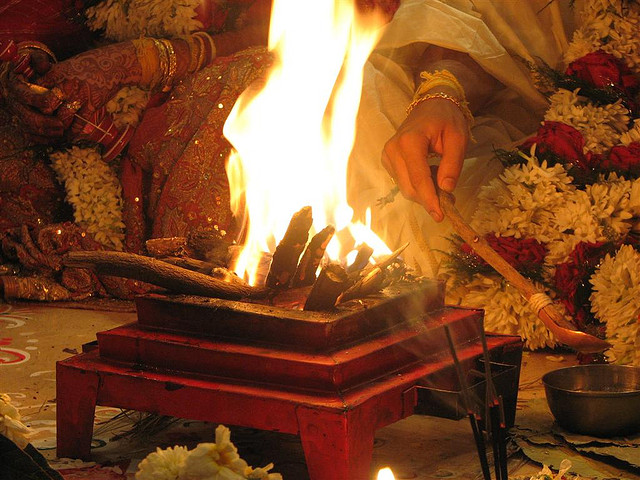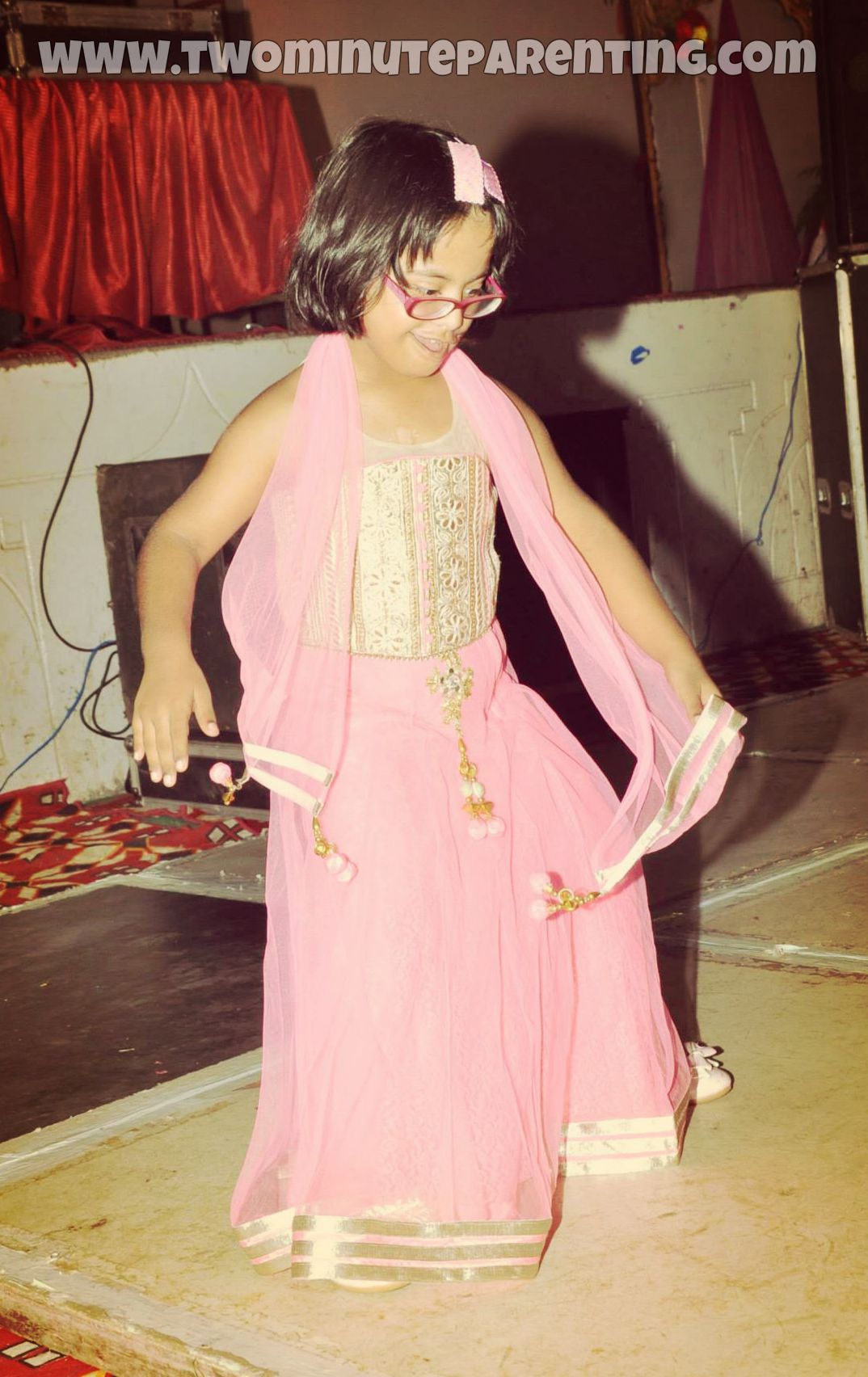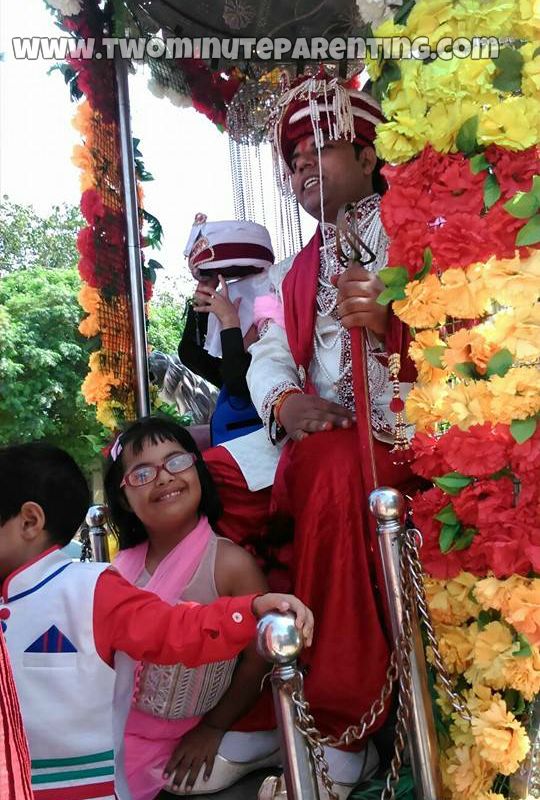Last week, my brother got married and, with him I once again got to live the celebrations that we all Indians give so much importance to. Those who do not know what an Indian wedding looks like, let me give you a spoiler. It is filled with rituals and celebrations that can continue for weeks. The emphasis is not just on the couple but also on their respective families as Indian wedding is more about two families being brought together socially.
While Indian marriages are generally described more for being fat, big, extravagant and the pomp and show that they usually are, the one thing that always fascinates me about them irrespective of their size is the ‘seven vows’ and ‘seven pheras’. These seven vows are signified by the ‘saat( seven) pheras’ around the fire or ‘agni’ (basically circumambulating a consecrated fire seven times). It remains one of my favorite parts of the wedding where with each ‘phera’ the couple makes a commitment to each other.

This time when we all were witnessing the sacred ceremony, I was wondering the importance of the ritual and how it helps two people coming closer and committing for life. My daughter was equally amazed at the enormity of the whole exercise. The traditional attires, the music, the mantras, the family and friends sitting in a circle, she looked around wide eyed and then came and sat with me, trying to make sense of whatever was happening. As she sat beside me, I gave her a smile and she happily held my hand and started enjoying the ceremony.
My attention drifted from the pheras to her. She was tired but amazed and curious about the whole affair. In spite of my reservations, she kept up with everything all these days leading up to the wedding and also contributed a dance item in the sangeet ( music) ceremony a day before. She chose her two dresses herself (both pink) and carried them beautifully. She did everything that any other little girl of her age would’ve done and I couldn’t have been more proud of her.
While the mantras were being called and, the vows were being made in the background, I was thinking about her and, the unsaid commitment that I had made with her the day I accepted her whole heartedly. The vows between two people who love each other have always been special in any wedding but the vows that a mother makes in her heart when she becomes one, are equally important. Yes, there is no occasion for us to say it all and, thank God for that but we all have those promises and devotion towards the child that we bring in this world.

It is all the more significant if the child is of special needs, then the commitment made is more special and the promises more deep, not that it is not there in case of a typical child but in the case of a special needs child this commitment is tested every day whole of your life.
The mantras were getting louder and somewhere somebody mentioned that now the bride and groom will have to be together for seven lives. I smiled at people’s surety of the next lives and made a comment on how these two would be bored out of their mind living with the same person for next so many lives.
Those who are unaware would be interested to know that in Hinduism it is believed that marriage between two souls is a very sacred affair that stretches beyond one lifetime and may continue up to at least seven lives. I began to think about the same and how an Indian wife and husband are expected to love and marry the same person for next 7 births. It might sound ridiculous to many but most women I know want to marry the same man they have as a husband now. I wondered why? Why would you like to face the same set of problems, annoying habits or familiarity if you can avoid that? Not that it is sure to happen but my over analytical brain wanted to wander and I let it did just that. I began to ask myself if I would like to have the same husband in next birth and my answer was an instant yes and in the same breath I went to another dimension, If I could choose to have my daughter again in the next life, would I do it? Hell! Yes, I WILL, without a blink I told my overworking mind. But isn’t marrying different than having a child with disability? Am I trying to draw comparisons when there isn’t any? Or there is?

In a marriage, you learn to live with somebody for the first time, you don’t know a lot about them, you get surprises, shocks, you make adjustments, get irritated, hurt or sad but in the long run you learn to make peace with those things and most of the stuff that you thought was overwhelming stop bothering you. It is the same if you have a child with disability, you might feel broken about the ‘disability’ and the challenges it brings but once the love takes over, everything else becomes irrelevant and most of the days you forget that there is disability in the picture.
I could hear the vows in the background along with mantras and the whole atmosphere was filled with sanctity and beautiful Sanskrit words, and I couldn’t help but say a secret vow to my daughter, who now was sleeping peacefully in my lap, the vow that I will love her forever and will be happy to be her mother again, in this life and in coming all lives. I was smiling while reading all these vows in my head when she woke up and sat straight feeling sad for missing out on few minutes of wedding, that’s when I hugged her tight and told her ‘I love you’. She didn’t know what made me say that in the middle of all that chaos but like a good daughter she looked at me in those beautiful almond eyes and told me back’ I dove you mom’!
Image source: smitascrazy.blogspot.com






